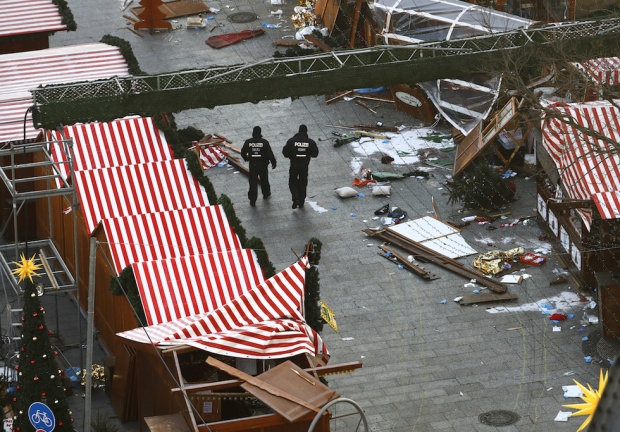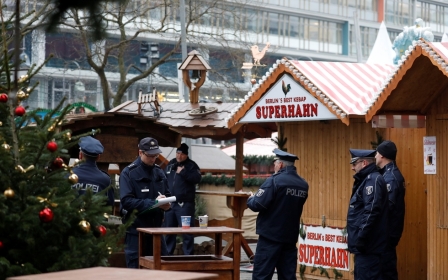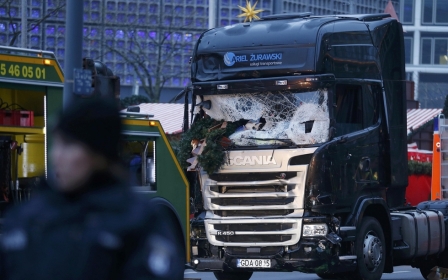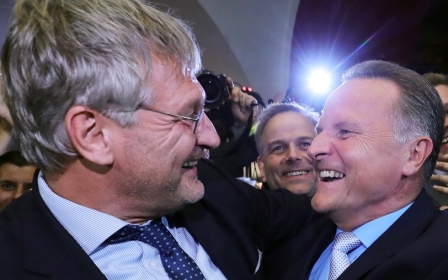Tunisian suspect in Berlin attack had been probed for plot: Official
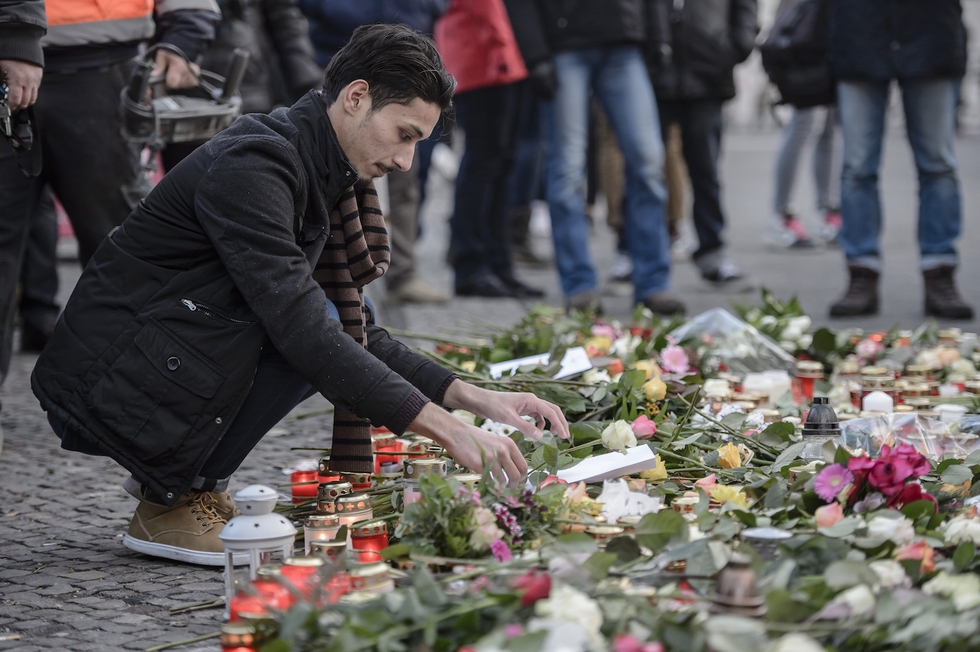
A Tunisian man wanted over this week's deadly Berlin Christmas market truck rampage had already been in the crosshairs of counter-terrorism officials over an attack plot, a regional minister said Wednesday.
The man, named by German prosecutors as Anis Amri, had been under covert surveillance for several months this year, police confirmed on Wednesday night.
A probe was launched against the man on suspicions that he was preparing "a serious act of violence against the state", said Ralf Jaeger, interior minister of North Rhine-Westphalia state.
However, it was terminated because authorities could not prove their suspicions.
Counter-terrorism officials had exchanged information, most recently in November, about the man, who was known to have links to radical Islamists, Jaeger told a press conference as police were searching for the man aged in his 20s.
Amri left Tunisia seven years ago, his father told a local radio station in Tunisia, and spent four years in prison in Italy for burning down a school before leaving for Germany last year.
Police in Tunisia were reportedly questioning Amri's family on Tuesday night.
Federal interior minister Thomas de Maiziere had earlier said the suspect police were searching for was "a suspect but not necessarily the assailant" behind the bloody attack that killed 12 people on Monday.
Jaeger said Germany had rejected in June an asylum request by the Tunisian man, who had first arrived in the country in July 2015, but was unable to deport him because he said he did not have travel documents.
Tunisia had initially denied that the man was one of its nationals and had long delayed sending new papers, which Jaeger said were received only Wednesday.
READ: Islamic State's new tactic stops West welcoming refugees
Twelve people were killed when the Polish-registered articulated truck, laden with steel beams, slammed into the crowded holiday market on Monday, smashing wooden stalls and crushing victims.
Twenty-four people remain in hospital, 14 of whom were seriously injured, according to de Maiziere.
The scenes revived memories of the 14 July truck assault in the French Riviera city of Nice, where 86 people were killed by a Tunisian militant.
The IS-linked Amaq news agency said "a soldier of the Islamic State" carried out the Berlin carnage "in response to appeals to target citizens of coalition countries".
There was no evidence to back the claim, nor was the perpetrator identified.
Germany is part of a US-led coalition fighting IS in Iraq and Syria.
The attack comes at a sensitive time for Chancellor Angela Merkel who is running for a fourth term in 2017 but has faced strong criticism over her decision last year to open the country's borders to refugees.
Only suspect freed
In a blow to investigators on Tuesday, federal prosecutors announced they had to release the only suspect in custody after finding no forensic evidence to link him to Germany's deadliest attack in recent years.
The Pakistani man was arrested late Monday after he was reportedly seen jumping out of the truck and fleeing the scene.
But officials had expressed growing doubts over whether they had the right suspect in custody, and he denied the charges under repeated questioning.
"We may have a dangerous criminal in the area," Berlin's police chief Klaus Kandt said, adding that security would be boosted while urging "heightened vigilance".
READ: Germany's veil ban is a step in the wrong direction
Following the suspect's release, Kandt told ARD television "one or more" perpetrators were believed to be on the run and possibly armed.
Police said they were chasing up more than 500 tips from the public and examining DNA traces found in the cab of the truck.
"I am fairly confident that we will have a new suspect tomorrow or very soon," the head of the BDK police union, Andre Schulz, told ZDF late Tuesday.
Images from the aftermath of the rampage showed the mangled truck with its windscreen smashed, a trail of destruction in its wake, while survivors recounted harrowing stories of near misses and bloody carnage.
Germany in mourning
A Polish man, who died from a gunshot wound, was found on the truck's passenger seat, said de Maiziere. He was believed to be the original driver of the Polish-registered vehicle.
The 37-year-old Pole, named Lukasz, worked for his cousin Ariel Zurawski's transport company in northern Poland. Zurawski described him as a "good guy" and said his body showed signs of a struggle with the assailant or assailants.
'No one will rest until the perpetrator or perpetrators have been caught'
- Thomas de Maiziere, German interior minister
"One person would not have been able to overpower him," Zurawski said of the relative he had grown up with, a heavyset man who weighed in at 120 kilos and stood 183 centimetres tall.
"We could see injuries. His face was bloodied and swollen," he told private news channel TVN 24, referring to a photo he received from Polish police.
An autopsy indicated that the driver was still alive at the time of the attack, the daily Bild reported.
Merkel visited the scene of the carnage for a minute's silence on Tuesday and then joined a memorial service in the adjacent Kaiser Wilhelm Memorial Church.
Berlin's landmark Brandenburg Gate was lit in the national colours in honour of the victims, and foreign leaders, led by US President Barack Obama, sent their condolences.
Europe still on alert
Europe has been on high alert for most of 2016, with bloody attacks by IS and al-Qaeda-linked militants in Paris and Brussels.
In July, 15 people were injured in two attacks in the southern German state of Bavaria committed by asylum seekers and claimed by the Islamic State group.
The arrival of 890,000 refugees last year has polarised Germany, with critics calling the influx a serious security threat.
Opponents were quick to seize on the carnage as proof that Merkel's liberal asylum policy had endangered the country.
Marcus Pretzell of the anti-immigration Alternative for Germany party labelled the Christmas market victims "Merkel's dead".
Middle East Eye propose une couverture et une analyse indépendantes et incomparables du Moyen-Orient, de l’Afrique du Nord et d’autres régions du monde. Pour en savoir plus sur la reprise de ce contenu et les frais qui s’appliquent, veuillez remplir ce formulaire [en anglais]. Pour en savoir plus sur MEE, cliquez ici [en anglais].


